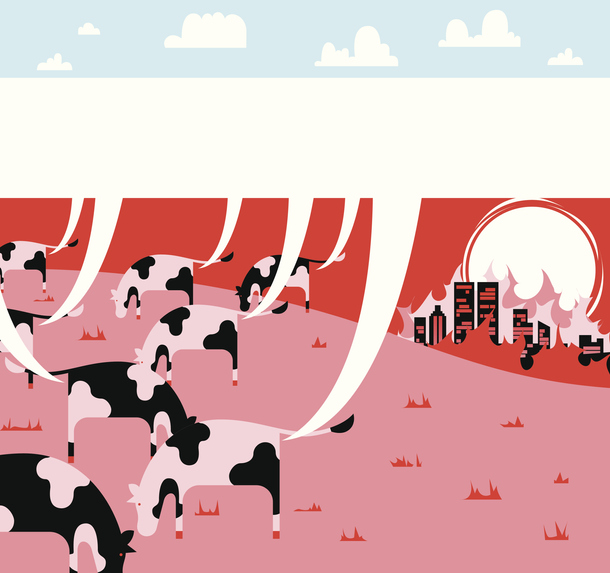The Green New Deal (GND), a proposed plan to “guide” legislation during the next decade, and supported by Washington’s Governor, has not gotten the outraged response from the agricultural community it deserves.
In a fact sheet provided to National Public Radio, authors of the GND confirm there will still be greenhouse gases in 10 years’ time because they’re sure they can’t “get rid of farting cows” that quickly.
Now, this is where the crickets come in.
The agricultural community should be speaking out against any suggestion that belittles its importance to the U.S. and global economy. The agricultural community should show that it is continually improving its environmental stewardship even without cajoling from urban greens.
The United State Environmental Protection Agency notes in its 2016 data, the most recent available, that transportation and electricity generation account for 56 percent of all the greenhouse gas emissions in the United States followed by Industry (22 percent), Agriculture (9 percent), Commercial (6 percent), and Residential (5 percent). Overall, greenhouse gas emissions in the United States declined 1.2 percent between 2015 and 2016.
So, contrary to popular belief, agriculture is only contributing 9 percent of total greenhouse gases in the United States. Even if we radically cut greenhouse gas emissions from agriculture, it would make a tiny impact. The cost, however, could be very large.
One of the GND proposals pushes for a total national transition as far as is “technologically possible” from fossil fuel-powered vehicles to “green” fuels including biodiesel and electric. Even the National Biodiesel Board’s comments that it would be “extreme” to say all diesel use could be replaced with biodiesel. Additionally, there are very few farm equipment makers that have engines capable of running entirely on biodiesel and even fewer offering electric models.
John Deere, Case, and New Holland can all operate on a biodiesel-diesel blend while Massey Ferguson and Fendt can run on 100 percent biodiesel, provided you have newer models. Any gas-powered tractors are excluded from diesel or biodiesel use without a costly retrofit. John Deere and Fendt are also piloting fully electric tractors but there are currently no cost estimates from either company.
Beyond the cost associated with retrofitting the agricultural and shipping fleets in the United States, the argument that agriculture is ruining the environment is counter to the practical realities of the business. What benefit would there be for agriculturalists to ruin what they rely on for their livelihoods?
Farmers and ranchers are among the most conservation-minded people you are likely to meet. Preserving soil health, efficiently using water resources, and raising livestock with the utmost care are all practices that help feed the families of farmers and ranchers along with everyone else.
The agricultural community is, ultimately, tasked with a critical job: feeding and clothing the United States and the globe. This monumental task means the agricultural community should speak up any time policies threaten to curtail that pursuit.
Agriculture has a history of being a slow-moving target in the policy battle, choosing a reactive rather than proactive approach to various topics. As I’ve discussed with many people over the years, it is likely because farmers and ranchers are not generally outgoing people.
One does not become a farmer or rancher because they are interested in telling their business and/or family story to friends and strangers alike. It is safe to say the more accurate description is that farmers and ranchers pursue their profession because of a passion to provide for those around them.
Now is the time for farmers and ranchers to begin to turn the tide of public opinion. If a wave of new policy “suggestions” that include the possible eradication of the national beef herd and an exclusion of large equipment because it isn’t “green” enough, aren’t enough motivation, what is?




